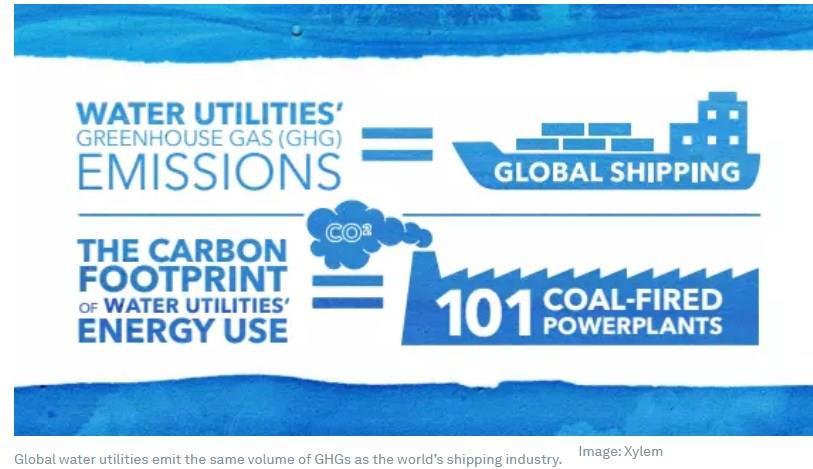by Patrick Decker*
This year, the theme for World Water Day on 22 March is making the invisible visible – and now more than ever before, the water sector’s efforts to advance global sustainability is a story that should be shared and celebrated widely.
The water sector is in a unique position. Water operators have long been stewards of an essential resource and water infrastructure is a cornerstone of every prosperous economy. At the same time, today’s water systems are major sources of global greenhouse gas (GHG) emissions: global water utilities emit the same volume of GHGs as the world’s shipping industry. But water utilities could cut their emissions dramatically and quickly, at low to no cost – and they are already taking significant action.
In fact, the water sector could become one of the fastest sectors to decarbonize and act as a blueprint for others. Here is how the industry is working together to get there:
1. Making firm, sector-wide commitments to reduce emissions
Leading utilities and stakeholders from across the water sector are joining the Race to Zero, the UN’s global initiative rallying sectors and regions to take immediate action to halve global emissions by 2030. Water companies in the UK have almost halved operational emissions since 2011 through a combination of energy efficiency measures, renewable energy and the production of biomethane from sewage treatment processes.
It’s a global trend: more than 65 water and wastewater utilities around the world have already set net-zero, carbon and climate neutrality targets, including some of the largest utilities in the world. By defining the destination, our sector is setting a firm direction of travel towards decarbonization.

2. Deploying affordable, high-efficiency technologies to make meaningful, early progress
Readily available technologies are an important and affordable part of the roadmap in the race to zero, combined with changes in process, policy and practice. Assessments by Xylem and our partners indicate that global water utilities could cut GHG emissions in half, at low to no cost, with existing high-efficiency technologies. Think “smart” pumps, leak detection sensors and other digitally-powered solutions that dramatically reduce the amount of energy used in the treatment and transport of water. These abatement opportunities are low-hanging fruit and, crucially, do not require new technologies or carbon-pricing policies.
3. Defining the pragmatic actions – processes, policies and practices – to get all the way to net zero
Technology is one part of the solution. Supporting processes, policies and practices are needed to fast-track progress, to create accountability, to reduce the costs and risks of the transition to net zero, and to unlock new benefits linked to emissions reductions initiatives.
The water industry’s experience demonstrates that the foundations of success are available, today: affordable technology, experience, funding, collaboration and, increasingly, regulatory incentives. What’s more, our experience shows that by prioritizing the reduction of emissions, big results are possible – quickly, affordably and at minimal risk.
The decisions the global business community makes on the way to net-zero will have consequences for decades. Today on World Water Day, let’s celebrate the water sector’s work to be a pacesetter in decarbonization. And let’s take action, across sectors, to become part of the solution to climate change and to build a more sustainable future.
*Chief Executive Officer, Xylem
**first publshed in: www.weforum.org




 By: N. Peter Kramer
By: N. Peter Kramer
